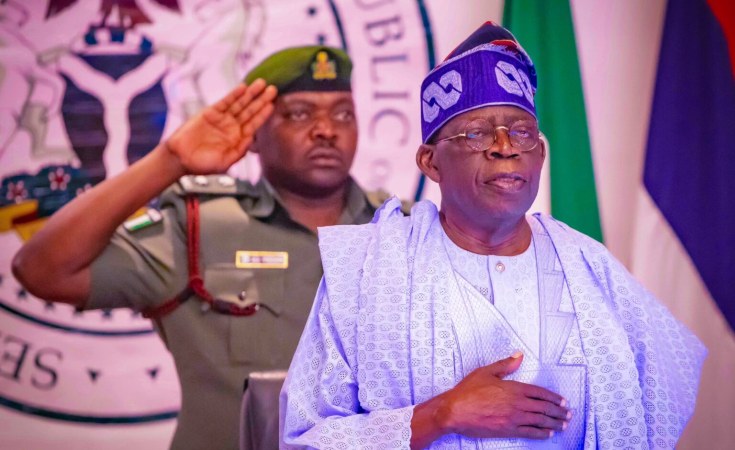Nigeria's President Bola Tinubu has told the country that ending a long-standing fuel subsidy was a painful necessity. But the knock-on effects of the move are having a great impact on Nigerians' everyday lives.
Nigeria's new President Bola Tinubu on Monday called on Nigerians to accept the burden imposed by the removal of a popular gasoline subsidy, saying the decision would make money available for other important social sectors such as health care and education.
The subsidy had long kept consumer prices for petrol artificially low at a cost to the government of billions of dollars, leading to wider budget deficits and driving up public debt.
What has Tinubu said?
Speaking in a national broadcast for Nigeria's Democracy Day, Tinubu said: "Painfully, I have asked you, my compatriots, to sacrifice a little more for the survival of our country. For your trust and belief in us, I assure you that your sacrifice shall not be in vain."
"The government I lead will repay you through massive investment in transportation infrastructure, education, regular power supply, health care and other public utilities," he added, declining to give a timeframe when this would happen.
The president said Nigerians should bear the decision to "save our country from going under."
Tinubu, a former Lagos governor and businessman, had already called for an end to the subsidy on his first day in office last month after his election in a close-run poll in February.
What effect is the subsidy removal having?
The decision to remove the subsidy has caused gasoline prices to almost triple, from 190 naira (Ꞓ0.38, $0.41) per liter to about 540 naira per liter.
Transport costs have also risen, and there has been as a knock-on impact on food prices and the cost of electricity for the many Nigerians who use gasoline-run generators for power owing to a fragile national power supply.
Experts say the removal of subsidies was long needed, but critics say the government failed to put in place adequate measures to cushion the resulting inflationary effect, which comes on top of the 20% inflation Nigerians are already facing.
However, rating agencies Fitch and Moody's have said removing the fuel subsidy is positive for the economy of Nigeria, Africa's largest economic power.
Although the country is one of Africa's biggest oil producers, it has little capacity for refining, instead swapping its crude for gasoline.
The subsidy last year cost the government $10 billion.
tj/lo (AFP, Reuters)


